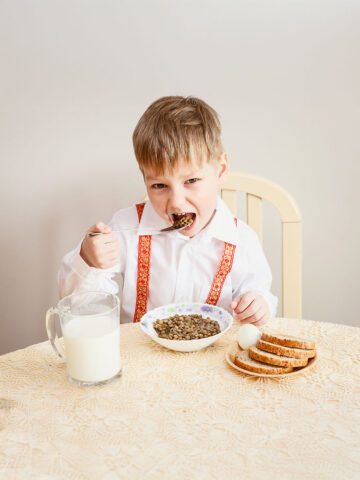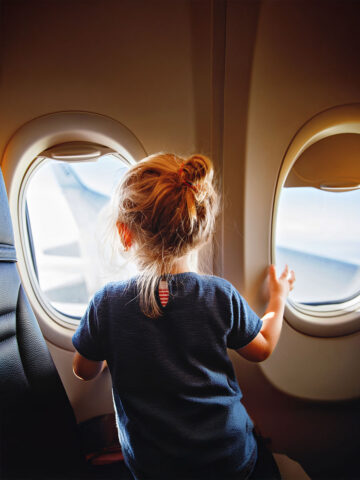The holidays are right around the corner, often triggering an extra-busy travel season. For some kids, more travel can mean more motion sickness putting a damper on family festivities.
Motion sickness, most common in school-aged children, occurs when one part of your balance-sensing system (eyes, ears, sensory nerves) knows your body is moving, but the other parts don’t, sending mixed signals to the brain. For example, when riding in a car, a child’s inner ear can sense movement, but if he’s too small to see out the window, the brain is also getting messages that the body is still. The brain gets a little confused, which can result in symptoms associated with motion sickness.
There are several things parents can do to help prevent their young travelers from experiencing motion sickness.
- Avoid greasy food or big meals right before a car or airplane ride, since that can upset an already queasy tummy.
- When possible —and safe to do so— have the child ride in the middle seat, which has the least amount of motion. Keep in mind child passenger safety guidelines.
- Sing along to music or ask kids to play an “I Spy” game — easy distractions that can help your children keep their minds off potential motion sickness. Reading books or watching movies can make motion sickness worse.
- Make sure children who are prone to motion sickness can see out the window. If possible, roll car windows down for fresh air.
When packing for holiday travel, be sure to include dry crackers, water or juice, “barf” bags and an extra set of clothes, should your child get sick. If motion sickness strikes during a car ride, pull over to the side of the road as soon as it’s safe to do so. If you’re able to, find a safe location for your child to get out of the car. If possible, place other passengers away from kids with motion sickness. Sometimes, watching someone get sick can trigger a similar response in others. Remind children that motion sickness is not contagious
Some anxiety could be brought on by getting carsick regularly. Remind kids and other siblings that it’s not their fault, and they didn’t do anything wrong that caused them to get sick.
Motion sickness is not a gastrointestinal disorder. A fever, decreased appetite, or other symptoms may be signs of another illness, warranting a call to the pediatrician.
Although not the first line of defense, there are several over-the-counter and prescription medications that can help kids cope with motion sickness. Check with your child’s pediatrician before administering any medication.





